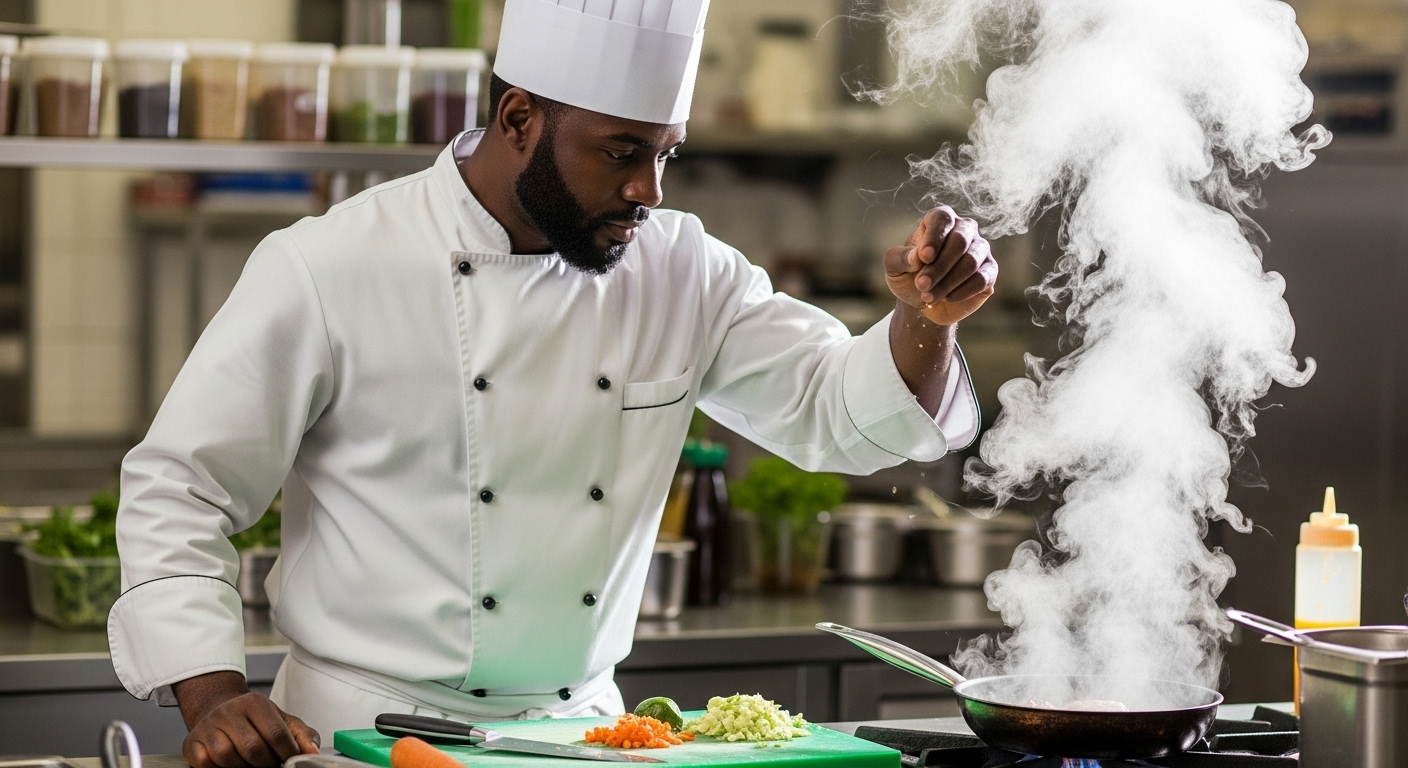Introduction: Understanding the Cost to Become a Chef in Nigeria
The journey to professional cooking is not just about passion but also about strategic financial investment. Aspiring chefs in Nigeria must navigate various expenses, from tuition to equipment and certification fees. This guide aims to offer a detailed analysis of the cost to become a chef Nigeria, providing a roadmap for those eager to step into the culinary world with informed choices. For pricing insights, visit our page on the /cost-to-become-a-chef-in-nigeria
Core Components of Chef Training Costs
Culinary Education Programs
Educational programs are the cornerstone of culinary training. In Nigeria, these range from short-term certificate courses to comprehensive diploma programs. Here’s a breakdown:
- 6-month certificates: ₦200,000–₦500,000
- 2-year diplomas: ₦800,000–₦3,000,000+
- Hybrid options offer online modules that lower accommodation costs but require practical kitchen access.
- Government technical programs: Subsidized rates at ₦50,000–₦150,000 per semester, though they offer limited specialization.
Essential Equipment and Uniforms
Equipping oneself with the right tools is vital. A typical professional toolkit includes:
- Knife sets: ₦30,000–₦150,000
- Thermal-control jackets and checkered trousers: ₦25,000–₦80,000
- Digital probes and precision scales
Certification and Licensing Fees
Certifications augment a chef’s credentials and are often mandatory. Relevant costs include:
- Professional association dues (e.g., Association of Professional Chefs Nigeria): ₦15,000–₦60,000 annually
- National Business and Technical Examinations Board (NABTEB) verification: ₦7,500–₦20,000
- Specialization certificates (e.g., food safety, pastry): ₦10,000–₦45,000
Hidden and Contingency Expenditures
Supplementary Skill Development
Beyond the core curriculum, additional skills can be honed through workshops and masterclasses:
- Workshops on Nigerian regional cuisine techniques: ₦15,000–₦75,000
- International masterclasses: ₦100,000+
Operational Trial Costs
Practical training often incurs extra costs such as:
- Ingredient sourcing trials for menu development
- Fuel/transportation for market research
- Commercial kitchen rental fees during practicums: ₦5,000–₦20,000 per hour
Cost-Saving Strategies to Reduce the Cost to Become a Chef in Nigeria
Resource Optimization Approaches
To manage expenses effectively, consider these strategies:
- Cooperative equipment sharing among trainees
- Utilizing agricultural produce seasons for budgeting
- Substituting imported items with local alternatives, like using tiger nuts instead of almonds
Return on Investment Analysis
Evaluating the long-term benefits of culinary education is essential. Structured programs, such as our Professional Chef Diploma, incorporate industry placements that help offset potential delays in earnings.
Common Misconceptions About Chef Training Fees Nigeria
Debunking Financial Myths
- Fallacy: “Apprenticeships eliminate tuition fees” – Most require equipment deposits.
- Oversight: Neglecting perishable goods waste in cost projections.
- Error: Comparing culinary institute fees without evaluating syllabus depth.
FAQs: Chef Training Investment in Nigeria
- Q: Are online courses recognized by Nigerian hospitality employers?
A: Accredited programs with verifiable practical components meet industry standards. - Q: What’s the typical payback period for culinary education loans?
A: Typically 18–36 months post-certification for chefs securing hotel or corporate roles. - Q: Do government grants cover international certification exams?
A: Partial subsidies exist through SME development funds; however, candidates typically fund 60–80%.
Conclusion: Strategic Planning for Culinary Education
Total career entry costs for aspiring chefs in Nigeria can range from ₦500,000 for accelerated programs to over ₦4,000,000 for comprehensive degrees. Evaluating the relevance of syllabi against intended specializations is more crucial than merely considering base tuition figures. The initial investment is more efficient when curricula integrate cultural techniques, as illustrated in our Nigerian Cuisine Foundations course.
Begin Your Calculated Culinary Journey
For personalized tuition breakdowns and syllabus comparisons of our accredited programs, reach out to us. Email [email protected] with the subject line “Chef Investment Analysis”. Discover flexible payment plans that accommodate seasonal income fluctuations in Nigeria’s vibrant culinary sector.
For more insights on the Nigerian culinary landscape, explore the Nigerian culinary salary benchmarks provided by the National Bureau of Statistics.


